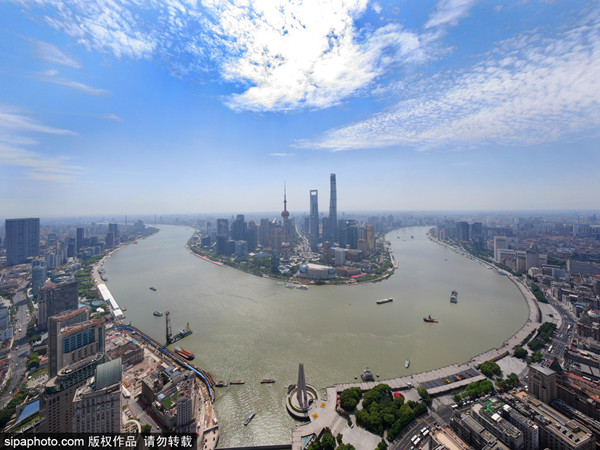Shanghai FTZ 7 years on: A pioneer in institutional innovation

A skyline of Shanghai in East China [Photo/Sipa]
The China (Shanghai) Pilot Free Trade Zone (FTZ), the first of its kind in the country, was set up in 2013 and is responsible for exploring new ways to deepen reform and opening-up.
Over the past seven years, the Shanghai FTZ has explored new ground in facilitating trade and investment, transforming government functions, and promoting financial innovation, leading to noteworthy achievements in the country's institutional innovation, according to Gao Feng, spokesperson for the Ministry of Commerce (MOC).
Among the 260 reform measures that were tested out at various pilot free trade zones over the past seven years, 124 originated in the Shanghai FTZ or were jointly developed with other FTZs, including the negative list mechanism for foreign investment, the "single-window" service system, the separation of business licenses and operating permits, and the Free Trade Account system.
Statistics show that as of the end of June, a total of 12,000 newly-established foreign enterprises had entered the Shanghai FTZ, which accounted for 77 percent of Pudong's total number, generating a total paid-in foreign investment of $37.1 billion. The zone also witnessed sustainable growth in its foreign trade, accounting for more than 40 percent of Shanghai's total.
Gao said that in the first half of this year, the country's pilot FTZs played an important role in keeping foreign trade and investment stable amid the COVID-19 epidemic.
Total import-export volume of the country's 18 pilot FTZs reached 2.2 trillion yuan ($321 billion) from January to June, accounting for 15.6 percent of the country's total, while the actual use of foreign investment in that period was 80.78 billion yuan, 17.1 percent of the country's total, according to Gao.
He said that the MOC will join hands with local governments to further promote the development of free trade zones and ports. The country will grant greater autonomy in reform and opening up to pilot free trade zones to further expand opening-up and accelerate innovative development.
More explorations based on the unique conditions of different pilot FTZs will be continued. Reform measures proven to work in pilot FTZs will be replicated and applied elsewhere, aiming to set up an open, transparent and stable environment for foreign investors.








